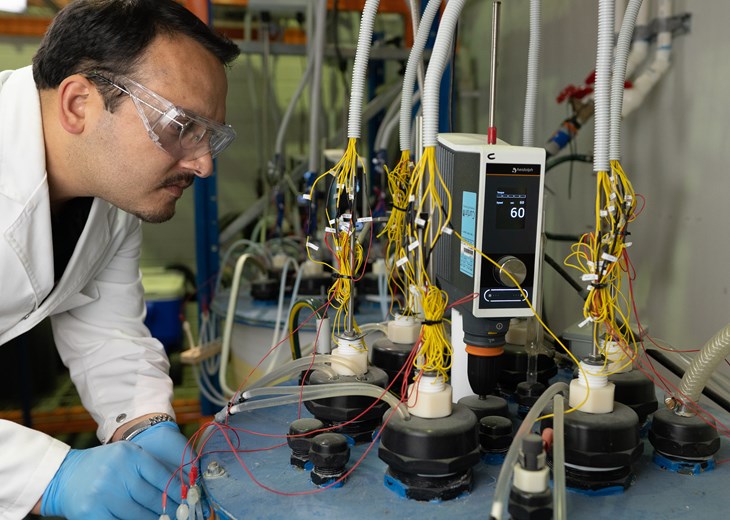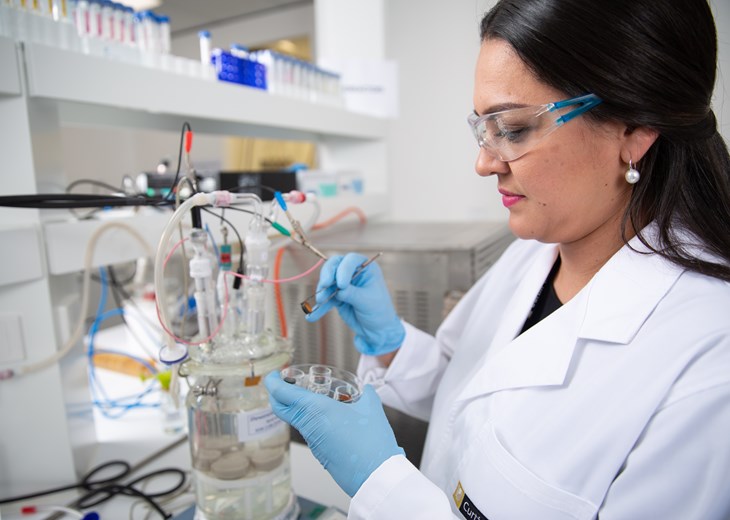Who we are

About us
For over 35 years, the Curtin Corrosion Centre has been conducting state-of-the-art scholarly and demand-driven research in areas of corrosion related to the petroleum, mining, defence, and chemical processing industries. Likewise, the centre is actively engaged in short-term research and development (R&D) problem-solving projects.

What we do
Together with fundamental corrosion research, our work includes fit-for-purpose qualification of materials and chemicals, localised corrosion and environmentally assisted cracking (EAC) studies, tribocorrosion, evaluation of corrosion inhibitors, microbiologically influenced corrosion (MIC), corrosion under insulation (CUI), under deposit corrosion (UDC), top and bottom of the line corrosion, as well as testing to Australian and international standards and custom adaptations to meet specific needs. The Curtin Corrosion Centre also provides a consultancy service, involving Subject Matter Experts (SMEs) working in specialist areas.
A BRIEF HISTORY
We have been conducting high-quality corrosion research for over 35 years
The now Curtin Corrosion Centre was established in 1987 by Professor Brian Kinsella as the Western Australian Corrosion Research Group (WACRG) at Curtin University. Today, two pillars support the Curtin Corrosion Centre:
Our research and services to industry partners include (i) mechanically assisted corrosion (e.g., stress corrosion cracking, hydrogen embrittlement, and tribocorrosion), (ii) microbiologically induced corrosion, (iii) corrosion under insulation, (iv) coatings selection, life prediction, and degradation, (v) localised corrosion, (vi) qualification of materials and chemicals, (vii) evaluation of corrosion inhibitors and under deposit corrosion, (viii) CO2-related corrosion mechanisms, (ix) advanced electrochemical methods, (x) corrosion and integrity management, (xi) tribocorrosion, and more.
In addition to our state-of-the-art facilities, in 2019, the Curtin Corrosion Centre commissioned the first EXTREME Laboratory in Australia, which allows high-pressure testing in H2S and hydrogen gas. The laboratory enables, for example, materials and corrosion research for the oil and gas, water, and power industries as well as hydrogen transport and storage investigations.
The Centre offers an internationally recognized Master in Corrosion Engineering, Graduate Certificate and Diploma, undergraduate corrosion courses, and training and workshops to sponsors and the local communities.
Our mission
Transform lives and communities through excellence in corrosion and materials education and research.
Our vision
A recognised leader in corrosion and materials research, education, and outreach.
